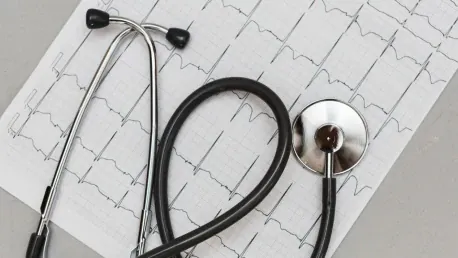The FDA’s approval process for high-risk medical devices, particularly those used in cardiology, has come under scrutiny, with significant concerns raised about the sufficiency of evidence supporting the effectiveness and safety of these devices. Sanjay Kaul, MD, a cardiologist at Cedars-Sinai Medical Center in Los Angeles, argues that the current approval standards may be too lenient, allowing devices to reach the market based on limited and potentially inconclusive data.
Recent Examples of Controversial Approvals
Evoque and TriClip Devices
Kaul raises concerns about the FDA’s 2024 approvals of the Evoque transcatheter tricuspid valve replacement system and the TriClip transcatheter edge-to-edge valve repair system. He critiques these approvals, highlighting that while the devices reduced tricuspid regurgitation, they did not demonstrate significant impacts on mortality, the need for surgical intervention, or biomarkers indicative of heart failure. The absence of substantial evidence linking these devices to improved clinical outcomes raises doubts about their overall benefits.
Moreover, the approval process for these devices differed in significant ways. The TriClip device received feedback and endorsement from an advisory panel, which theoretically ensures a more robust evaluation process. In contrast, the Evoque device was approved without such advisement, calling into question the consistency and rigor of the FDA’s approval standards. Kaul underscores the importance of rigorous evaluation and consistent application of approval processes to maintain patient safety and trust in medical devices.
Paradise Ultrasound and Symplicity Spyral Systems
In 2023, the FDA approved the Paradise Ultrasound renal denervation (RDN) system and the Symplicity Spyral RDN system, despite the fact that both devices only resulted in modest reductions in systolic blood pressure. This has led to further criticism from Kaul, who argues that the minor improvements in clinical outcomes do not justify the approval of these high-risk devices. Given the potential risks associated with their use, he stresses the need for more convincing evidence before granting market access.
Additionally, only the Paradise Ultrasound device received endorsement from an advisory panel, unlike the Symplicity Spyral system. This disparity in the approval process raises concerns about the thoroughness and reliability of the FDA’s evaluation methods. Kaul points out that a standardized, rigorous process involving advisory panels could help ensure that approval decisions are based on comprehensive assessments of safety and effectiveness.
Historical Trends and Current Criticism
MitraClip and Watchman Devices
Reflecting on historical trends from 2013 to the present, Kaul observes an increasing number of cardiac devices being approved despite equivocal or negative results from pivotal trials. He cites specific examples such as Abbott’s MitraClip and Boston Scientific’s Watchman devices, suggesting that their approvals highlight a concerning trend toward lower evidential thresholds. These cases exemplify the broader issue of balancing innovation with patient safety, underscoring the need for more stringent regulatory measures.
Kaul contends that the approval of these devices despite questionable data sets a dangerous precedent. The potential consequences of this trend include increased risk to patients and potential long-term issues if post-market studies fail to verify the initial claims of safety and efficacy. He emphasizes the necessity for the FDA to uphold high standards of evidence to ensure that only thoroughly vetted devices reach the market.
Mitigating Bias and Ensuring Rigorous Assessment
Kaul emphasizes the need for the FDA to better mitigate biases in device trials and ensure a rigorous assessment of safety and efficacy. He advocates for more stringent pre-market evaluations and insists on timely and comprehensive post-approval studies. These follow-up studies are crucial for verifying initial claims and identifying any long-term adverse effects. Strengthening these processes can help prevent the approval of devices that fail to demonstrate their purported benefits after they have been introduced to the market.
To reinforce his point, Kaul calls for the FDA to actively use its authority to revoke approvals for devices that fail to complete the necessary follow-up studies or confirm clinical benefits. By taking decisive actions against non-compliant devices, the FDA can emphasize the importance of continuous data collection and adherence to regulatory requirements. This approach ensures that patient safety remains a top priority while fostering innovation within the medical device industry.
The Need for Higher Standards
The FDA’s approval process for high-risk medical devices, especially those used in cardiology, is being closely examined because of significant concerns about the adequacy of the evidence supporting their effectiveness and safety. Dr. Sanjay Kaul, a cardiologist at Cedars-Sinai Medical Center in Los Angeles, believes the current approval standards may be overly lenient. According to Kaul, these standards often allow devices to enter the market based on limited and possibly inconclusive data. This situation raises questions about whether these potentially life-saving devices are indeed safe and effective for patients. The scrutiny highlights a critical issue in the medical community: the need for more rigorous testing and evaluation before such devices are approved for widespread use. Ensuring thorough vetting processes could better protect patients from the risks associated with insufficiently tested medical devices. As this debate continues, it underscores the importance of balancing innovation with patient safety in the regulatory landscape.









